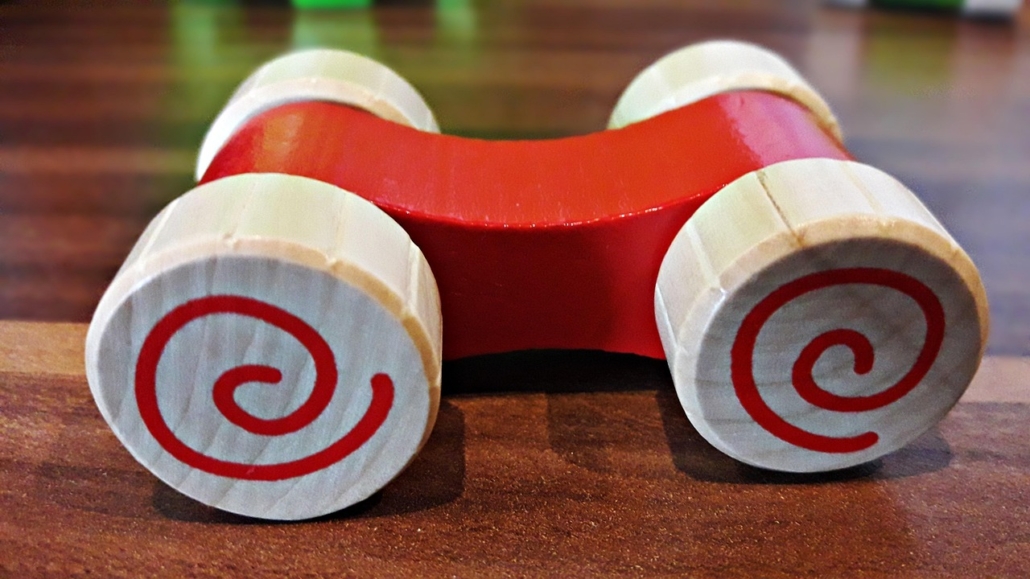Opioid addiction is a devastating crisis that affects millions of individuals and families worldwide. For couples, the impact of opioid addiction can be particularly profound, straining relationships, eroding trust, and creating a cycle of dependency that feels impossible to break. However, recovery is possible, and specialized treatment options are available to help couples navigate this challenging journey together.
This comprehensive guide provided by Couples Rehab explores the unique challenges couples face when dealing with opioid addiction, the treatment options available, and the importance of therapy and support in rebuilding trust and intimacy. Whether you’re a couple struggling with addiction, a family member seeking to help, or a professional looking for resources, this post provides actionable advice and insights to guide you toward recovery.
The Impact of Opioids on Relationships
Opioid addiction doesn’t just affect the individual—it deeply impacts their partner and the relationship as a whole. Here are some of the ways opioid addiction can strain a relationship:
1. Communication Breakdown
Addiction often leads to secrecy, dishonesty, and avoidance. Couples may struggle to have open and honest conversations, leading to misunderstandings and resentment.
2. Loss of Intimacy
Opioids can diminish libido and emotional connection, leaving partners feeling disconnected and unfulfilled.
3. Erosion of Trust
Broken promises, financial strain, and erratic behavior can erode trust, making it difficult for couples to rely on each other.
4. Financial Instability
The cost of opioids and the impact of addiction on employment can lead to financial stress, further straining the relationship.
5. Co-Occurring Disorders
Many individuals with opioid addiction also struggle with mental health issues like depression or anxiety, which can exacerbate relationship challenges.
Understanding these dynamics is the first step toward addressing the root causes of addiction and rebuilding a healthy relationship.
Understanding Opioid Addiction
Opioid addiction is a chronic disease that affects the brain’s reward system. Over time, the brain becomes dependent on opioids to function normally, leading to intense cravings and withdrawal symptoms when the drug is not available.
How Opioids Affect the Brain
- Dopamine Release: Opioids trigger a surge of dopamine, creating feelings of euphoria.
- Tolerance: Over time, the brain requires more opioids to achieve the same effect.
- Dependence: The brain adapts to the presence of opioids, leading to withdrawal symptoms when use is reduced or stopped.
Recognizing addiction as a medical condition, rather than a moral failing, is crucial for effective treatment and recovery.

Treatment Options for Couples
Couples facing opioid addiction have several treatment options available, each tailored to address the unique challenges of addiction within a relationship.
1. Medication-Assisted Treatment (MAT)
MAT combines FDA-approved medications with counseling and behavioral therapies to treat opioid addiction.
- Methadone: Reduces withdrawal symptoms and cravings.
- Buprenorphine: Helps manage cravings and withdrawal with a lower risk of misuse.
- Naltrexone: Blocks the effects of opioids and reduces cravings.
MAT is particularly effective for couples, as it stabilizes both partners, allowing them to focus on rebuilding their relationship.
2. Detoxification
Medically supervised detox is often the first step in treatment. It ensures that individuals safely withdraw from opioids while managing withdrawal symptoms.
3. Inpatient Rehab
Inpatient rehab provides a structured environment where couples can focus on recovery without distractions. Benefits include:
- 24/7 medical supervision.
- Intensive therapy and counseling.
- Peer support from others in recovery.
4. Outpatient Rehab
Outpatient programs offer flexibility, allowing couples to continue working or caring for family while receiving treatment. Levels of care include:
- Partial hospitalization programs (PHP).
- Intensive outpatient programs (IOP).
- Standard outpatient therapy.
5. Couples Therapy and Counseling
Couples therapy is a cornerstone of recovery for couples facing opioid addiction. It addresses:
- Communication issues.
- Trust and intimacy challenges.
- Co-occurring mental health disorders.
- Relapse prevention strategies.
6. Support Groups
Peer support groups like Narcotics Anonymous (NA) and couples-specific groups provide a safe space for sharing experiences and gaining encouragement.
The Importance of Couples Therapy
Couples therapy plays a vital role in addressing the relationship dynamics that contribute to addiction. Here’s why it’s essential:
1. Improves Communication
Therapy helps couples develop healthy communication skills, enabling them to express their feelings and needs effectively.
2. Rebuilds Trust
Through guided exercises and open dialogue, couples can begin to rebuild trust and repair emotional wounds.
3. Addresses Co-Occurring Disorders
Therapists can identify and treat underlying mental health issues that may contribute to addiction.
4. Strengthens Emotional Connection
Couples therapy fosters intimacy and emotional connection, helping partners feel valued and supported.
Rebuilding Trust and Intimacy
Recovery is not just about overcoming addiction—it’s about rebuilding the relationship. Here are some strategies for couples:
1. Practice Honesty and Transparency
Open communication is key to rebuilding trust. Be honest about your feelings, struggles, and progress.
2. Set Boundaries
Establish clear boundaries to protect your recovery and your relationship.
3. Prioritize Quality Time
Spend time together doing activities you enjoy, fostering emotional connection.
4. Seek Professional Help
A therapist can guide you through the process of rebuilding trust and intimacy.
Relapse Prevention Strategies
Relapse is a common challenge in recovery, but with the right strategies, it can be prevented.
1. Identify Triggers
Recognize situations, emotions, or people that may trigger cravings.
2. Develop Coping Mechanisms
Practice healthy coping strategies like exercise, meditation, or journaling.
3. Create a Relapse Prevention Plan
Work with your therapist to develop a plan that outlines steps to take if cravings arise.
4. Engage in Aftercare
Aftercare programs, such as ongoing therapy and support groups, provide continued support and accountability.
Finding Help and Resources
If you or your partner is struggling with opioid addiction, help is available. Here are some resources to get started:
National Resources
- SAMHSA National Helpline: 1-800-662-HELP (4357)
- Narcotics Anonymous (NA): www.na.org
- Partnership to End Addiction: www.drugfree.org
Local Treatment Centers
Search for couples opioid rehab programs in your area, such as “couples opioid rehab California” or “couples opioid rehab New York.”
Online Support Groups
Many organizations offer virtual support groups for couples in recovery.
Finding Recovery From Opioids With Couples Rehab
Opioid addiction is a challenging and complex issue, but with the right treatment and support, couples can overcome it together. By addressing the root causes of addiction, rebuilding trust and intimacy, and engaging in ongoing therapy and support, couples can create a healthier, happier future.
If you’re ready to take the first step toward recovery, reach out to a qualified treatment provider today. Recovery is possible, and you don’t have to face it alone.
- Find couples opioid rehab near you.
- Learn more about medication-assisted treatment (MAT).
- Download our relapse prevention guide for couples.
Meta Descriptions (Options):
Top 10 Questions About Couples Facing Opioid Addiction
- How does opioid addiction affect relationships?
- What are the best treatment options for couples facing opioid addiction?
- Can couples go to rehab together?
- How does couples therapy help with opioid addiction?
- What is medication-assisted treatment (MAT), and is it effective for couples?
- How can couples rebuild trust after opioid addiction?
- What are the signs of opioid addiction in a partner?
- How do you support a partner struggling with opioid addiction?
- What are the benefits of couples opioid rehab programs?
- How can couples prevent relapse after treatment?
Top 10 Answers
1. How does opioid addiction affect relationships?
Opioid addiction can severely strain relationships by causing communication breakdowns, loss of intimacy, and erosion of trust. Partners may become distant, secretive, or financially unstable due to the costs of addiction. Additionally, co-occurring mental health issues like depression or anxiety can further complicate the relationship dynamics.
2. What are the best treatment options for couples facing opioid addiction?
The best treatment options for couples include medication-assisted treatment (MAT), inpatient or outpatient rehab programs, couples therapy, and support groups. These approaches address both the physical and emotional aspects of addiction, helping couples recover together while rebuilding their relationship.
3. Can couples go to rehab together?
Yes, many rehab centers offer specialized programs for couples. These programs allow partners to undergo treatment simultaneously, providing a supportive environment where they can work on their individual recovery while addressing relationship challenges.
4. How does couples therapy help with opioid addiction?
Couples therapy helps by improving communication, rebuilding trust, and addressing underlying issues that contribute to addiction. It provides a safe space for partners to express their feelings, resolve conflicts, and develop healthier coping mechanisms together.
5. What is medication-assisted treatment (MAT), and is it effective for couples?
MAT combines FDA-approved medications like methadone, buprenorphine, or naltrexone with counseling and behavioral therapies. It is highly effective for couples as it reduces withdrawal symptoms and cravings, allowing partners to focus on their recovery and relationship.
6. How can couples rebuild trust after opioid addiction?
Rebuilding trust requires honesty, transparency, and consistent effort. Couples can attend therapy together, set clear boundaries, and prioritize open communication. Over time, small acts of reliability and accountability can help restore trust.
7. What are the signs of opioid addiction in a partner?
Signs of opioid addiction include mood swings, withdrawal from social activities, financial problems, neglect of responsibilities, and physical symptoms like drowsiness or weight loss. If you notice these signs, it’s important to seek professional help.
8. How do you support a partner struggling with opioid addiction?
Support your partner by encouraging them to seek treatment, attending therapy sessions together, and educating yourself about addiction. Avoid enabling behaviors, such as covering up their actions, and focus on providing emotional support and understanding.
9. What are the benefits of couples opioid rehab programs?
Couples rehab programs offer a shared recovery experience, allowing partners to heal together. Benefits include improved communication, strengthened emotional bonds, and a mutual understanding of the challenges and goals of recovery.
10. How can couples prevent relapse after treatment?
Couples can prevent relapse by identifying triggers, developing healthy coping mechanisms, and creating a relapse prevention plan. Engaging in aftercare programs, such as ongoing therapy and support groups, also provides continued support and accountability.

